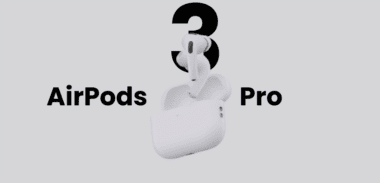Revolutionizing Technological Frontiers
Tech it to the Limit
Explore the Tech Revolution Today
Join the community of tech heroes and embark on a journey of innovation and discovery.
Gemini 3:Google’s AI Gets a Smarter App and a Proactive Agent
Google is dramatically escalating the capabilities of its AI flagship with the rollout of…
The Great EV Pivot: How Tesla is Fighting Back Against China’s Manufacturing Juggernaut
The global Electric Vehicle (EV) market has officially entered a new, intensely competitive…
Apple TV Drops the ‘Plus’ but Gains $200 in Value with Major Sports and Content Push
Apple’s premium streaming service, recently renamed simply Apple TV (dropping the original…
Apple’s iPhone production in India has created 350,000 jobs
In a significant economic development, Apple’s expanding manufacturing footprint in…
Catching Up: iPhone 17 Series Cooling with “Apple’s Unique Vapor Chamber” – 8 Years Late?
Apple’s recent unveiling of the iPhone 17 Pro/Max, featuring a new vapor chamber…
Apple AirPods Pro 3: Specs and Key Features
The AirPods Pro 3 represent a significant upgrade, transforming the popular earbuds into an…
Qualcomm Snapdragon 8 Elite Gen 5: Redefining Mobile Performance
Qualcomm has officially unveiled its new flagship mobile platform, the Snapdragon 8 Elite…
A19 Chipset: Specifications and Benchmark
The Apple A19 and A19 Pro chips are the latest generation of mobile processors designed by…
The iPhone 17 Pro and iPhone 17 Pro Max: A New Era of Professional Power
Apple has officially unveiled the iPhone 17 Pro and iPhone 17 Pro Max, a duo of flagship…
The iPhone 17: A Major Upgrade for the Mainstream
Apple’s new iPhone 17 has arrived, bringing a host of high-end features that were…
iPhone Air: Apple’s Ultra-Thin Revolution or Burden forever
On September 9, 2025, at its “Awe Dropping” event, Apple unveiled a…
Trump Threatens Trade Probe Over EU Fines on Google, Apple: A New Trade War Looms
U.S. President Donald Trump has escalated tensions with the European Union by threatening a…
Google Unveils Nano-Banana: The AI Image Editing Tool Revolutionizing Video Workflows
From Precise Image Edits to Seamless Video Creation in 2025 Google has introduced…
Google DeepMind Unveils Genie 3: Advanced AI for 3D Interactive Worlds from Text Prompts
Google DeepMind has introduced Genie 3, an advanced AI model designed to create fully…























